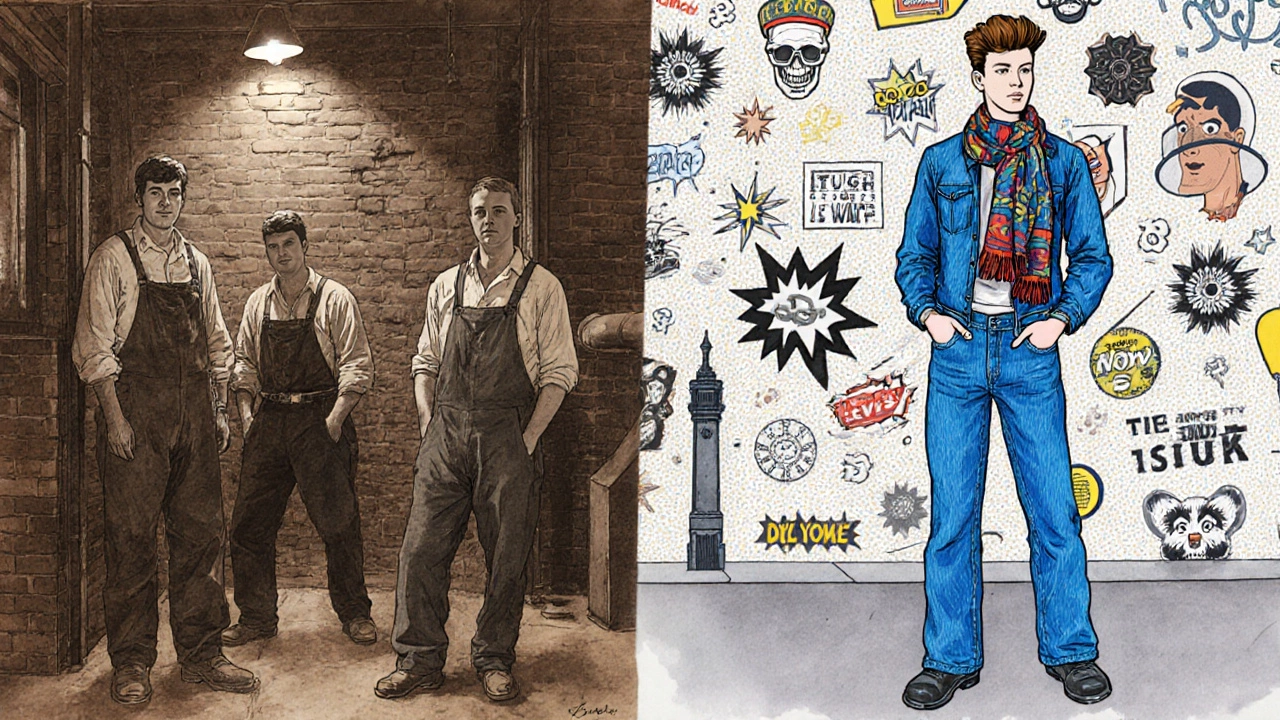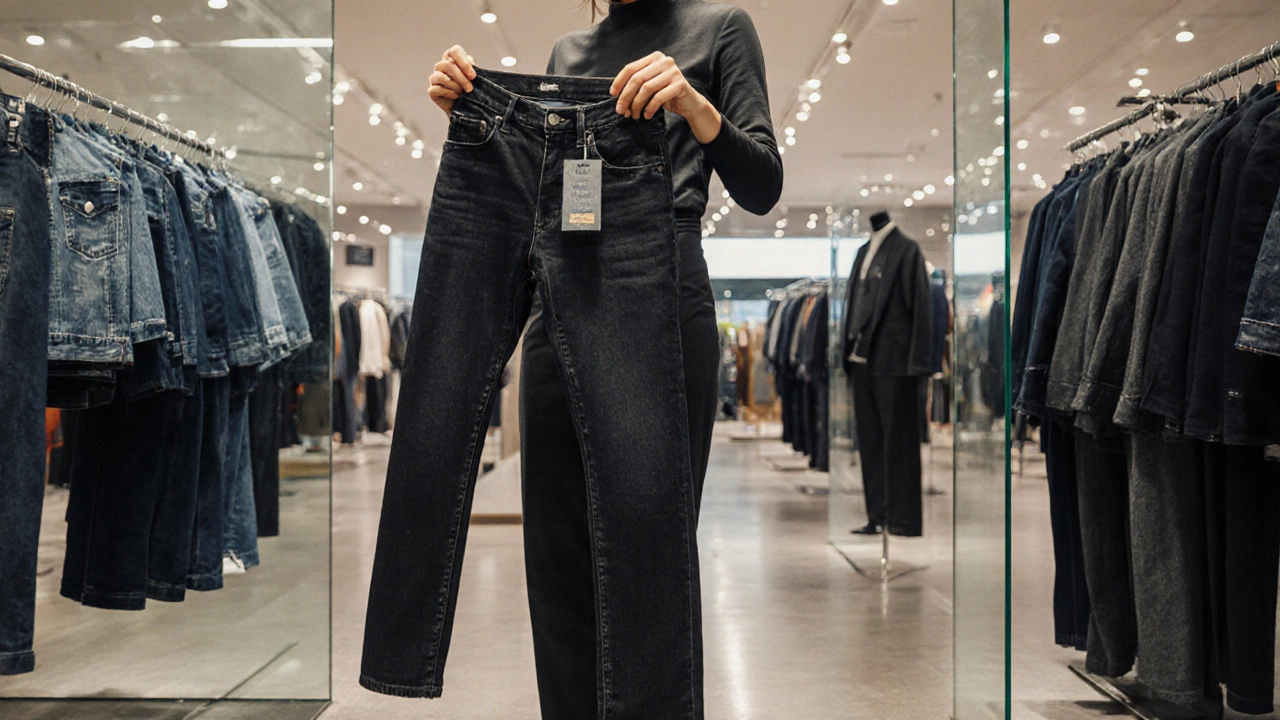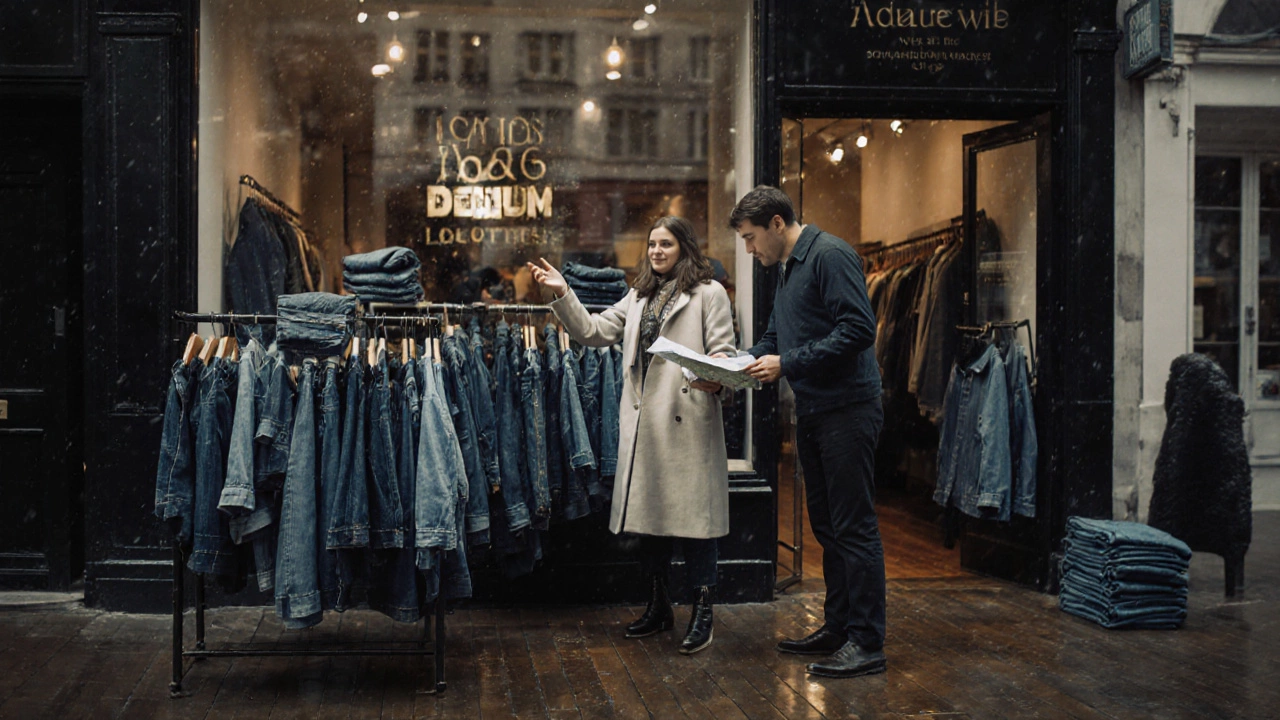UK vs US Denim Terminology Converter
Convert American or British English terms for denim clothing. Enter a term below to see its equivalent in the other dialect.
Tip: Use "jeans" for denim trousers in UK English, and remember that "pants" means underwear in the UK.
Quick Takeaways
- In everyday British speech, jeans are usually just called "jeans" or "denim trousers".
- The word "pants" in the UK means underwear, not denim.
- Retail stores label the product as "Jeans" or "Denim" to avoid confusion.
- Regional slang like "jeans" vs "dungarees" has largely faded.
- Understanding the nuance helps you sound natural when talking about denim in England.
When you travel from Toronto to London and ask a local where to buy a pair of Jeans, you’ll hear a surprisingly simple answer: they’ll likely say "jeans" or "denim trousers". It sounds straightforward, but the British language around denim carries a few historic twists that can stump visitors. This guide unpacks the exact words Brits use, why they differ from North American slang, and how retailers label the garment on store shelves.
What the British Actually Say
The everyday term in England is simply "jeans". You’ll see it on ads, menus, and casual conversation. However, because the word "pants" means underwear in the UK, the fashion industry often adds the qualifier "denim" to make it crystal clear. So a shop assistant might ask, "Are you looking for denim trousers?" That phrasing dates back to the early 20th century when denim was a distinct material compared to the wool‑blend "trousers" that dominated men’s wardrobes.
Historical Roots of the Term
Denim entered Britain in the 1850s as workwear imported from the United States. Early British workers called them "dungarees"-a term borrowed from the Hindi‑origin word for a sturdy cotton fabric. By the 1960s, the youth culture embraced the American style, and the word "jeans" (short for "Levi’s") became popular. Retail catalogs started using "Denim" as a material descriptor, while "trousers" remained the generic term for any bottom garment.
Denim vs. Trousers: A Semantic Split
In British English, "trousers" refers to any pant‑like garment made from woven fabric, typically wool, cotton, or synthetic blends. When the material is denim, the phrase "denim trousers" is technically correct, though most people just shorten it to "jeans". The distinction matters in formal settings: a dress code that permits "trousers" but not "jeans" is really excluding denim.
Here’s a quick rule of thumb: if the fabric is denim, say "jeans"; if it’s any other woven material, say "trousers". This helps you navigate British dress codes without a wardrobe mishap.

Retail Labeling in the United Kingdom
British retailers are meticulous about labeling to avoid the American‑British confusion. You’ll find tags that read:
- "Jeans" - the most common retail label.
- "Denim" - used when emphasizing fabric, as in "Denim Straight‑Leg".
- "Denim Trousers" - appears in department stores that separate "trousers" from "jeans" for inventory purposes.
Regional Slang and Its Decline
Older generations in northern England sometimes used "dungarees" or "bottoms" as catch‑alls for denim. Today, those words are rarely heard outside vintage‑fashion circles. In Scotland, you might still hear "jeans" pronounced with a short “e”, but the term itself remains unchanged.
Because slang evolves quickly, the safest bet is to stick with "jeans" or "denim trousers" unless you’re chatting with a fashion‑savvy elder who enjoys the nostalgia of "dungarees".
How to Talk About Them in Conversation
When you want to sound natural, follow these conversation cues:
- Ask, "Do you have any good denim stores around?" - the word "denim" signals you mean jeans.
- Comment, "I love the new straight‑leg jeans at Topshop." - using the store name keeps the tone local.
- If you need to clarify fabric, say, "Are these trousers made of denim?" - this avoids the "pants" confusion.
Common Misunderstandings
Many North Americans assume that "pants" always means trousers, leading to awkward moments in the UK. For example, a tourist might ask a shop assistant, "Do you sell pants?" and be handed a rack of underwear. The correct phrasing is "trousers" for woven bottoms or "jeans" for denim.
Another mix‑up occurs with the term "skinny jeans". In the UK, "skinny" refers to the cut, while "slim fit" is a newer label used by high‑street brands. If you say, "I’m looking for skinny denim," the staff will understand, but saying "slim fit jeans" may get you a broader range of styles.

US vs. UK Denim Terminology: A Quick Comparison
| Term (US) | Equivalent (UK) | Notes |
|---|---|---|
| Jeans | Jeans / Denim trousers | Most common; "denim trousers" used for clarity |
| Pants | Trousers | "Pants" means underwear in the UK |
| Denim | Denim | Material descriptor, appears on labels |
| Dungarees | Dungarees (historical) | Rarely used today, mostly vintage context |
| Skinny jeans | Skinny jeans / Slim fit | "Slim fit" gaining popularity in UK |
Mini FAQ
Frequently Asked Questions
Do British people say "jeans" or "denim trousers"?
Both are correct. "Jeans" is the everyday term, while "denim trousers" is used in more formal or retail contexts to distinguish from non‑denim "trousers".
What does "pants" mean in the UK?
In British English, "pants" refers to underwear, not to denim or other trousers.
Is "dungarees" still used?
Only in vintage‑fashion circles or among older generations. Modern shoppers mostly use "jeans" or "denim trousers".
How should I ask for denim in a UK shop?
A polite way is, "Do you have any denim trousers or jeans?" This avoids the "pants" confusion.
Are "skinny" and "slim fit" the same?
They refer to similar cuts, but "slim fit" is a newer marketing term used by many UK retailers.
Next Steps: Using the Right Words
If you’re shopping, start by saying "jeans" or "denim trousers" to the clerk. When writing a review or a blog post about British fashion, remember to use "trousers" for non‑denim bottoms and keep "pants" out of the conversation. This small language tweak will make you sound like a local and avoid the classic wardrobe blunder of ordering "pants" in a London shop.
Finally, keep an eye on evolving slang. Fashion language shifts with trends, so checking the latest UK style blogs or store websites will keep your vocabulary fresh. Happy denim hunting across the pond!





